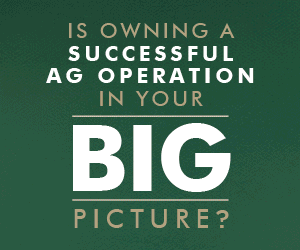Father Gary DeRouchey- From South Dakota To Iraq and Back
Community November 11, 2016 Staff Writer 14

 On Veterans Day, we honor all the men and women who served in the U.S. military. Technology and time have changed the face of war, but not the faces. They are still our fathers, brothers, sons, mothers, sisters and daughters.
On Veterans Day, we honor all the men and women who served in the U.S. military. Technology and time have changed the face of war, but not the faces. They are still our fathers, brothers, sons, mothers, sisters and daughters.
As General Douglas MacArthur said, “The soldier above all others prays for peace, for it is the soldier who must suffer and bear the deepest wounds and scars of war.” For those of us who have never walked a single mile in combat boots, it is difficult to imagine. Still, we understand war can only be horrific and we thank God someone is willing to go in our place. We know no soldier returns unscathed.
Father Gary DeRouchey of St. Lawrence Catholic Church in Milbank served in the U.S. Army as a chaplain, military intelligence officer, and morse code interceptor. He was deployed to the Middle East, Europe, and Asia.
As a chaplain, he experienced firsthand many soldiers’ pain and anguish. He saw the ravages of war and the scars that were not always visible. His mission was peace. Peace for the world and inner peace for thousands of soldiers thousands of miles from home.
The Valley Express sat down with Father Gary to listen to his story and learn how a priest from South Dakota ended up saving souls in Iraq. And how, in the course of things, he helped to build the first Christian church in Qatar in fourteen centuries.
It’s a long story and one that gives credence to the saying, “Write your plans in pencil because God has the eraser.”
Father Gary explained, “I chose the military before the priesthood. I joined the Army when I was 18. It was a spur of the moment thing, really. I had five brothers and three sisters and, including their spouses, we had someone represented in all branches of the armed forces. My dad’s four brothers were also in all four branches. We grew up in Miller, South Dakota, and the easiest way to leave town was in uniform. I was planning to enlist, serve, and retire. But, that’s not what happened.”
“Because I was a foreign exchange student in high school, I wanted to be a German linguist. They wanted me in military intelligence, so I learned Morse Code. I did serve in Germany, though, from 1984 to 1986. In 1986-87 I worked and lived on an Air Force Base, in San Antonio, Texas, even though I was in the army. After that, I returned to South Dakota to attend USD. I went through ROTC at Vermillion and was in the Army Reserves in field artillery for five years in Sioux City, Iowa. Upon graduation in 1992, I went back to active duty and headed to Arizona for officer basic course .”
“I was deployed to Korea from 1993 to 1994 and intended to go to Arizona for more officers’ training. However, my mother was diagnosed with her third bout of cancer and I stepped out of active duty and back into the Reserves. I returned to Vermillion to work for my uncle and be close to my mom. Later that summer, my baby brother was killed in a work-related accident. This marked the beginning of my final discernment toward the priesthood.”
“It was a decision that was a long time in the making. Both my parents were Catholic, but not necessarily actively engaged in the church. Every Sunday, though, and every Holy Day of Obligation you went to church. No arguing!”
“From third grade on I was at the altar. When I was confirmed, Bishop Dudley asked me when I was going to become a priest. I answered, I was planning to get married and have six kids. Every time I saw the Bishop, he would ask me when I was going to enter the seminary. I always had the same answer.”
The next year, Father Gary entered the seminary and became a chaplain candidate. Following his ordination, he was made a chaplain in the Army. “Less than a month after becoming a priest, I was summoned to the Pentagon. They needed a Catholic priest for the coverage. I was a captain, but I was escorted around by a full-bird colonel so I could celebrate Mass in the war room. The staff was unable to leave, but they had to observe the Holy Day of Obligation. I officiated for three weeks and then returned to South Dakota where I served as associate pastor at Immaculate Conception in Watertown, then to Sacred Heart in Aberdeen .”
“Before my first anniversary as a priest, I was back on active duty. I had volunteered for Iraq. In 2002, when things started escalating in Iraq, I petitioned the Bishop to release me to the military. He said, ‘If we go to war, I will release you, if we are not at war, I will hold you until Easter Sunday.’ I was deployed to Quatar and Saudi Arabi before returning to the US to become parish administrator of Saints Peter and Paul in Pierre from 2004-2008.
 During that time I went to Arlington National Cemetery. There I provided funeral services for the service members, veterans and their families. I would do 4-6 services per day. The maximum I was allowed to do was 6. I seldom ever performed under 4. In 2008 I was deployed to Iraq where I served from 2008-2010. In 2010 I returned to the diocese and came to St. Lawrence Catholic Church and School in Milbank. Since I’ve been in Milbank I have been called to do one stint at the Pentagon for two weeks. I am still considered to be military but I am in the IRR (inactive ready reserve)
During that time I went to Arlington National Cemetery. There I provided funeral services for the service members, veterans and their families. I would do 4-6 services per day. The maximum I was allowed to do was 6. I seldom ever performed under 4. In 2008 I was deployed to Iraq where I served from 2008-2010. In 2010 I returned to the diocese and came to St. Lawrence Catholic Church and School in Milbank. Since I’ve been in Milbank I have been called to do one stint at the Pentagon for two weeks. I am still considered to be military but I am in the IRR (inactive ready reserve)
“Some important things happened in Qatar. We created an R&R site. The soldiers would come down to get a few days away from the battlefield. We made sure they got a hot shower, a bed to sleep in, and food. Some of those kids came down, took a shower, and got into bed and slept for days. Sleep was a powerful healer!” Father Gary went on to explain. “Where General Franks gave his briefings back in 2002 became the chapel. The X’s in the floor where the General stood were still there. Once the war came to an end (but, we kept on fighting), General Franks and his staff abandoned the building. They left a huge warehouse with office spaces. That is where we set up the R&R site and a chapel.”
“One of my responsibilities was to furnish the new chapel building. They said, ‘You’re the Catholic priest, you’re the one who is going to need the most stuff. Getting the stuff was easier said than done, though. I ordered it all – everything from the altar to the tabernacle and vestments. There were no financial issues, but when I ordered it, I thought it was expensive. They said, ‘That’s it? That’s all you want?’ I said, ‘That’s everything we need!’ They said, ‘Really?'”
“Anyway, we waited for the furniture. We waited a long time for everything. One day they said, ‘It’s on the docks. It’s too big to ship. I said, ‘That’s not logical. You can ship a tank. Why can’t you ship church stuff?’ Then, they told me it’s on a ship. Then, it had hit dock. Then, ‘Oh sorry, you can’t get your stuff. They won’t let it in the country because the gold box is a violation of religious freedom. They were talking about the tabernacle. It wasn’t true. They had lost it. You know where they found it? In their own warehouse. It had been delivered and was sitting on the shelf. They forgot it. So they finally called me and said, ‘We found it, when would you like it delivered?’ ‘NOW, I said. Deliver everything NOW.'”
“So they delivered it and we put it all together. Right after that, the building was condemned. They built the walls wrong and we couldn’t take possession. Finally, we got the chapel all figured out and they had to redo the road so we could get access. Bureaucracy!”
“The other thing I did in Qatar was minister. There were 80,000 Catholics in the country, served by only five priests – four from India and one from the Philippines. I was the only priest assigned on the installation where there were some 12 to 15 Protestant chaplains. They got the paperwork and meetings; I got the ministry. I also agreed to offer a weekly Mass for the local community in Doha. Later, the Emir of Qatar gave the people land on which to erect a true church. Other than mosques, it was the first church built in Qatar.” St. Mary’s Catholic Church opened it doors on Easter Sunday 2014 in Doha, the capital of Qatar.
“Ministry always seemed to mean more traveling. In Iraq, the general was a devout Catholic and noticed some areas were not being served by a priest. The number of helicopters was also decreasing, so the general asked if I would travel in a convoy? I said, ‘Of course!’ So he gave me his security team. They were called the Easy Team. The senior person’s name was Angel. I was only allowed to ride in Angel’s vehicle. I always had an angel watching over me. On our first trip together, he gave his briefing and as he finished up, I asked, ‘Would you mind if we prayed before we get back on the road?’ All the soldiers took off their helmets and bowed their heads and we prayed.”
“There were some who said that they were atheists, but they had no problem praying together. We also spent those hours on the road talking about theology. We spent two and a half hours on one trip talking about sin. One of those guys said he was an atheist. He came to realize, though, he wasn’t. He was agnostic; he didn’t know what he believed. This was a very close team, but they allowed me to be part of their group and whenever they needed chaplain care, they would call on me.”
“There were many times when it seemed another angel was watching over me. One day, a man went into a medical facility and killed five people. I was supposed to be part of that call group, but I happened to be sent to a different installation that day and wasn’t there. There were also several convoys that got hit just before mine or after mine, but we never got hit. God was always just there and I could see that.”
“One time was truly an awakening. Sirens started going off. They had told us they were going to test the sirens in about five minutes, but they went off in three. Everyone headed to the bunkers. I said, ‘You people are nuts. They just announced they were going to be testing.’ So, I went to the gym. The gym was empty. Where was everybody? In the bunker. I stood outside the bunker, talking to the guys in the bunker. They were doing what they were supposed to be doing, but I said, ‘This is ridiculous. I should be getting my gym time right now.’ Just then, a missile came in, it hit the building right next to where I was standing – the dining hall. So I guess, when the whistle goes off you should probably be in the bunker. There were times when you wanted to say the heck with it, though, because they were really bad shots.”
“In the last couple of days the Easy Team was there, they called me and said, ‘Hey Father, will you come play basketball with us?’ These were 18 to 20 year-olds and I wasn’t. But, we got on the basketball court and were there only a minute or two when some foul language came out. I said, ‘No. That ain’t gonna work.’ They said, ‘Oh, Father…’ ‘Nope. Nope,’ I said, ‘I am not going to play basketball with foul language.’ So we played for a good hour, maybe an hour and a half and no foul language. They asked me to come back the next day and we got on the court. Somebody new joined us and the first thing out of his mouth was foul language. Before I could say anything, the private said, ‘Nope. Father won’t let you say that.’ It was nice to know, they recognized and respected the position of the priest. I was sad to see them go, but it was amazing the journey they had been on.”
 “In Qatar, I always knew where I would be sleeping; in Iraq, I never knew. In Iraq, I might have a cot with 100 other soldiers or nothing.”In Iraq, I covered everything south of Baghdad. I traveled it four or five days a week by helicopter. I was constantly traveling to meet soldiers.” I learned to sleep on a helicopter.”
“In Qatar, I always knew where I would be sleeping; in Iraq, I never knew. In Iraq, I might have a cot with 100 other soldiers or nothing.”In Iraq, I covered everything south of Baghdad. I traveled it four or five days a week by helicopter. I was constantly traveling to meet soldiers.” I learned to sleep on a helicopter.”
“Only two things I could be sure of every day. I would travel somewhere and I would celebrate Mass. I celebrated Mass at least once- could be four times per day. When I was flying with the General, wherever he stopped, I’d celebrate Mass and support the spiritual needs of the soldiers. We did a lot of traveling together on Thanksgiving and Christmas.”
“The General was a busy man, though, and often in a hurry. I pushed the envelope occasionally and would find him waiting for me. One day he said, ‘You know, Father, I was planning on leaving you.’ I said, ‘You know, General, then you don’t get Mass.'” Apparently, the General had no trouble keeping his priorities straight.”
“I also did a lot of counseling – just making contact with soldiers and being available so they knew they could talk to me. Of course you could always tell the chaplain by the big ol’ cross on his chest, but sometimes we talked in the dining room; sometimes in the gym.”
“One evening in Qatar, a soldier popped into my office just about bedtime. He said he’d said goodbye to his wife and kids and wanted to say goodbye to me. I asked him to come in and sit down and he started telling me what was going on in his life and how he was struggling to sleep. No one was helping him with his command and they were calling him a coward and telling him to bite the bullet. He hadn’t slept in days. I told him if he promised me he would be all right until 8 a.m., I would make sure he got a ride to the psychiatrist. We talked about calling on the Lord through the simple mantra ‘Come, Lord Jesus, come.’ ”
“He went off to his room and in the morning met the psychiatrist. A few hours later I got a phone call and it was the doctor. He said, ‘Chaplain, I just wanted to tell you this soldier is not coming back. He had planned to leave your office to kill himself. So, he’s on his way back to Walter Reed.’ It was simply the way he said good bye. That was my red flag.”
“One kid came down to the chapel and said, ‘I want to speak to a chaplain.’ I was standing there with a Protestant minister. The Protestant minister said, ‘He’s Catholic, I’m Baptist, who do you want?’ The soldier said, ‘I’m Baptist, but give me the Catholic.’ Probably for the best since the Baptist chaplain had to leave in 20 minutes and we ended up talking for over an hour.”
“Suddenly, the soldier looked at me and said, ‘You’re different.’ I said, ‘What do you mean?’ He said, ‘You’re not trying to kick me out of your office. Usually they’re ready to get you out after a while.’ I said, ‘Look around the room, do you see a clock? There’s only one person who trumps you and that’s God. I’ve already celebrated Mass today, so you’re good to go.’ We talked a bit longer and he looked at me and said, ‘Did you know you just saved my life?'”
“That was one of the big issues over in Iraq – a high suicide rate. Part of my job was to be there when we placed the remains in the plane so we could send all of our soldiers home in prayer. Too many of those were from self-inflicted injuries. It’s important to me there are soldiers alive today just because I took the time to listen. God gave us two ears and only one mouth. I guess he was onto something.”












